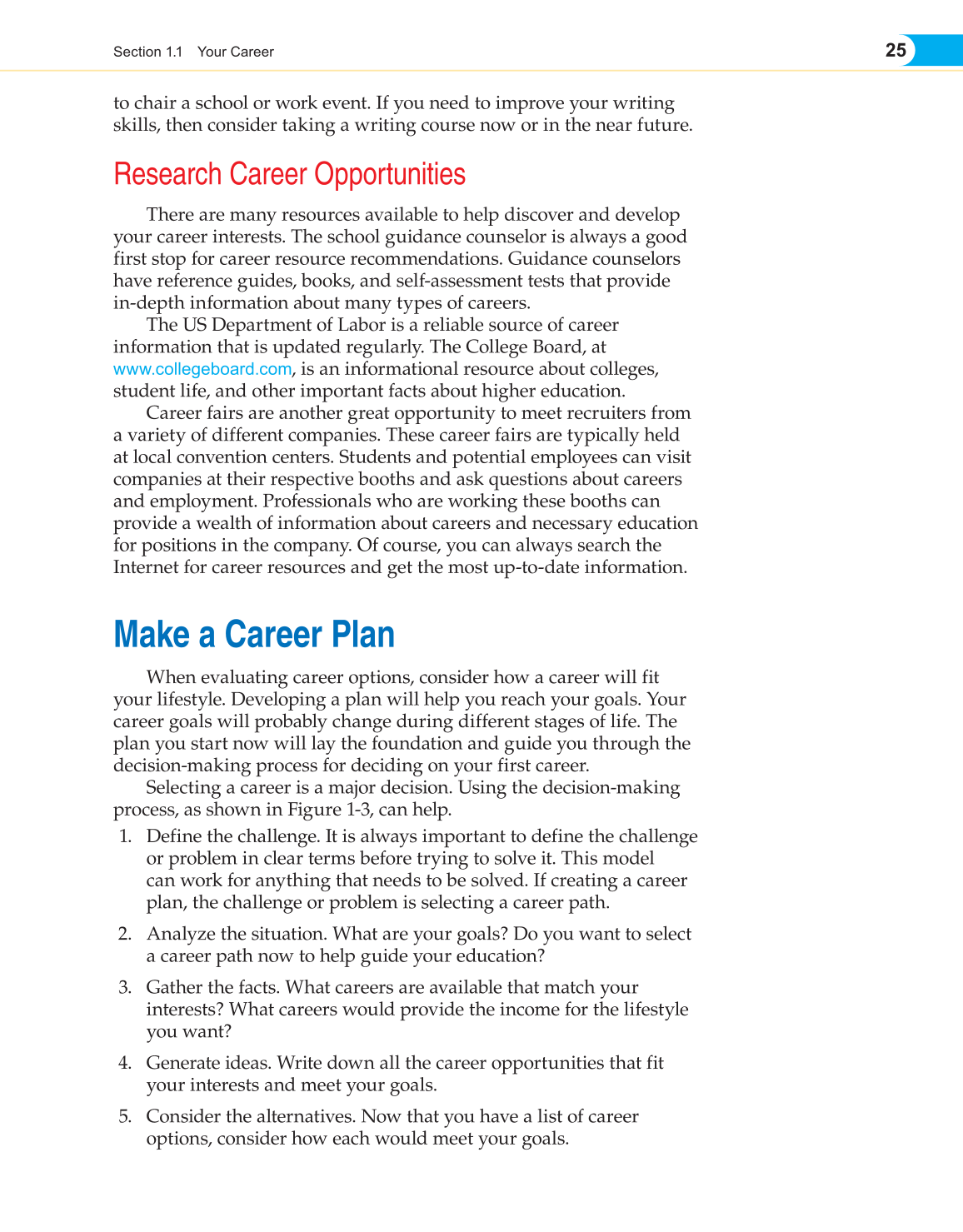25
Section 1.1 Your Career
to chair a school or work event. If you need to improve your writing
skills, then consider taking a writing course now or in the near future.
Research Career Opportunities
There are many resources available to help discover and develop
your career interests. The school guidance counselor is always a good
first stop for career resource recommendations. Guidance counselors
have reference guides, books, and self-assessment tests that provide
in-depth information about many types of careers.
The US Department of Labor is a reliable source of career
information that is updated regularly. The College Board, at
www.collegeboard.com, is an informational resource about colleges,
student life, and other important facts about higher education.
Career fairs are another great opportunity to meet recruiters from
a variety of different companies. These career fairs are typically held
at local convention centers. Students and potential employees can visit
companies at their respective booths and ask questions about careers
and employment. Professionals who are working these booths can
provide a wealth of information about careers and necessary education
for positions in the company. Of course, you can always search the
Internet for career resources and get the most up-to-date information.
Make a Career Plan
When evaluating career options, consider how a career will fit
your lifestyle. Developing a plan will help you reach your goals. Your
career goals will probably change during different stages of life. The
plan you start now will lay the foundation and guide you through the
decision-making process for deciding on your first career.
Selecting a career is a major decision. Using the decision-making
process, as shown in Figure 1-3, can help.
1. Define the challenge. It is always important to define the challenge
or problem in clear terms before trying to solve it. This model
can work for anything that needs to be solved. If creating a career
plan, the challenge or problem is selecting a career path.
2. Analyze the situation. What are your goals? Do you want to select
a career path now to help guide your education?
3. Gather the facts. What careers are available that match your
interests? What careers would provide the income for the lifestyle
you want?
4. Generate ideas. Write down all the career opportunities that fit
your interests and meet your goals.
5. Consider the alternatives. Now that you have a list of career
options, consider how each would meet your goals.
